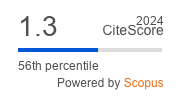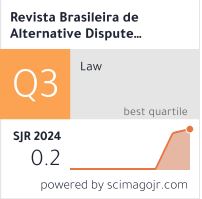Evolution of sports arbitration
from paper-based to digital evidence in football disputes
Keywords:
Sports Arbitration, Digital Evidence, Case Law, Hacked and Leaked Evidence, Practical notesAbstract
Digitalization poses many challenges to sports law, including the issues related to using digital evidence in sports arbitration. As one of the most popular sports, football has given rise to many sports controversies. Parties increasingly use digital evidence to prove their position, which requires arbitrators’ correct and professional assessment. The paper aims to explore the challenges digital evidence poses in sports, specifically focusing on football. The research is primarily focused on the admissibility of digital evidence and hacked and leaked evidence, given football’s susceptibility to data breaches. Applying comparative legal analysis and case study through an analysis of existing literature, legal frameworks, and case law allowed us to scrutinize a spectrum of digital evidence utilized by litigants to illuminate the admissibility standards adopted by arbitral tribunals. As a practical implication, the authors proposed practical guidance to stakeholders and adjudicators on managing and evaluating digital evidence in sports arbitration.
References
Ferreira, D. B., & Gromova, E. A. (2023). Electronic evidence in arbitration proceedings: empirical analysis and recommendations. Digital Evidence & Elec. Signature L. Rev., 20, 30. https://doi.org/10.14296/deeslr.v20i.5608.
Ferreira, D. B., Giovannini, C., Gromova, E., & da Rocha Schmidt, G. (2022). Arbitration chambers and trust in technology provider: Impacts of trust in technology intermediated dispute resolution proceedings. Technology in Society, 68, 101872. https://doi.org/10.1016/j.techsoc.2022.101872.
Ferreira, D. B., Giovannini, C., Gromova, E. A., & Ferreira, J. B. (2023). Arbitration chambers and technology: witness tampering and perceived effectiveness in videoconferenced dispute resolution proceedings. International Journal of Law and Information Technology, 31(1), 75-90. https://doi.org/10.1093/ijlit/eaad012.
Ferreira, D. B., & Gromova, E. A. (2023). Digital Evidence: The Admissibility of Leaked and Hacked Evidence in Arbitration Proceedings. International Journal for the Semiotics of Law-Revue internationale de Sémiotique juridique, 37, 903-922. https://doi.org/10.1007/s11196-023-10014-1.
Ferreira, D. B., & Gromova, E. A. (2024). Digital Evidence in Disputes Involving States, 118, 51-56. https://doi.org/10.1017/aju.2024.4.
Freeman, L. (2020). Hacked and Leaked: Legal Issues Arising from the Use of Unlawfully Obtained Digital Evidence in International Criminal Cases. UCLA J. Int’l L. Foreign Aff., 25, 45. https://escholarship.org/content/qt5b87861x/qt5b87861x.pdf.
Furnell, S. M., & Warren, M. J. (1999). Computer hacking and cyber terrorism: The real threats in the new millennium? Computers & Security, 18(1), 28-34. https://doi.org/10.1016/S0167-4048(99)80006-6.
Jonson, P., & Hoye, R. (2011). Sport law and regulation. Sport Management Review, 14(3), 223–225. https://doi.org/10.1016/j.smr.2011.08.003.
Kessler, Gary C. (2011) Judges’ Awareness, Understanding, and Application of Digital Evidence, Journal of Digital Forensics, Security and Law. 6, 1, 55-72. https://doi.org/10.15394/jdfsl.2011.1088.
Li, Z., Zheng, P., & Xie, H. (2024). Judicial digital intellectualization and corporate online misconduct. Finance Research Letters, 62, 105117. https://doi.org/10.1016/j.frl.2024.105117.
Mason, S., & Seng, D. (2021). Electronic Evidence and Electronic Signatures (p. 604). University of London Press. https://ials.sas.ac.uk/publications/electronic-evidence-and-electronic-signatures.
Patrikios, A. (2008). The role of transnational online arbitration in regulating cross border e-business – Part I. Computer Law & Security Review, 24(1), 66–76. https://doi.org/10.1016/j.clsr.2007.11.005.
Palanissamy, A., & Kesavamoorthy, R. (2019). Automated Dispute Resolution System (ADRS) – a proposed initial framework for digital justice in online consumer transactions in India. Procedia Computer Science, 165, 224–231. https://doi.org/10.1016/j.procs.2020.01.087.
Reedy, P. (2023). Interpol review of digital evidence for 2019–2022. Forensic Science International Synergy, 6, 100313. https://doi.org/10.1016/j.fsisyn.2022.100313.
Worster, W. T. The Effect of Leaked Information on the Rules of International Law (2013). American University International Law Review, 28, 443-464.
Zhang, J. K., Alimadadi, A., ReVeal, M., Del Valle, A. J., Patel, M., O’Malley, D. S., Mercier, P., & Mattei, T. A. (2023). Litigation involving sports-related spinal injuries: a comprehensive review of reported legal claims in the United States in the past 70 years. The Spine Journal, 23(1), 72–84. https://doi.org/10.1016/j.spinee.2022.08.012.
Downloads
Published
Issue
Section
License
Copyright (c) 2024 Revista Brasileira de Alternative Dispute Resolution - Brazilian Journal of Alternative Dispute Resolution - RBADR

This work is licensed under a Creative Commons Attribution 4.0 International License.
No royalties or other compensation shall be due for the publication of the works.
The opinions expressed by the authors of the articles and reviews are their sole responsibility.









